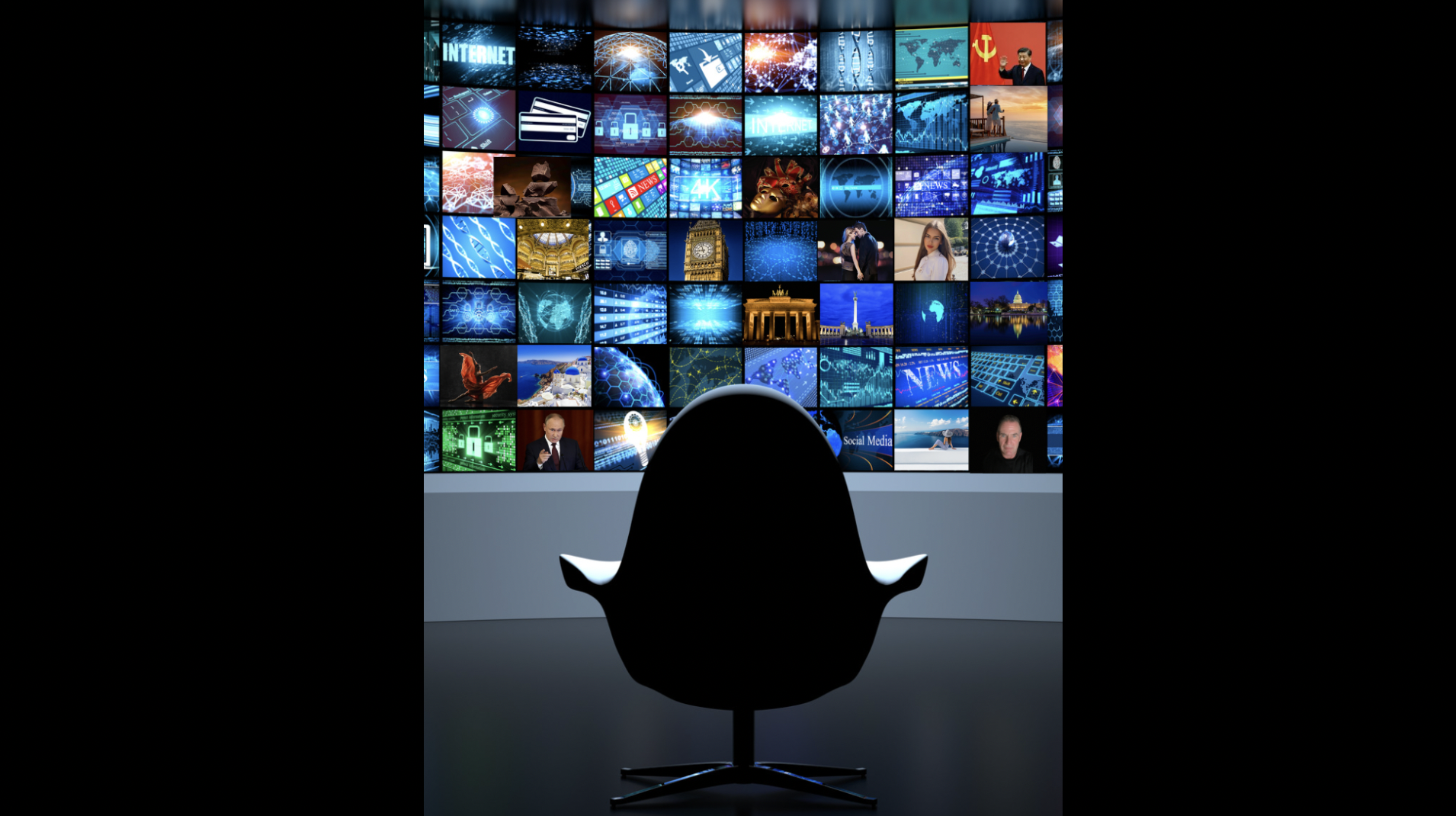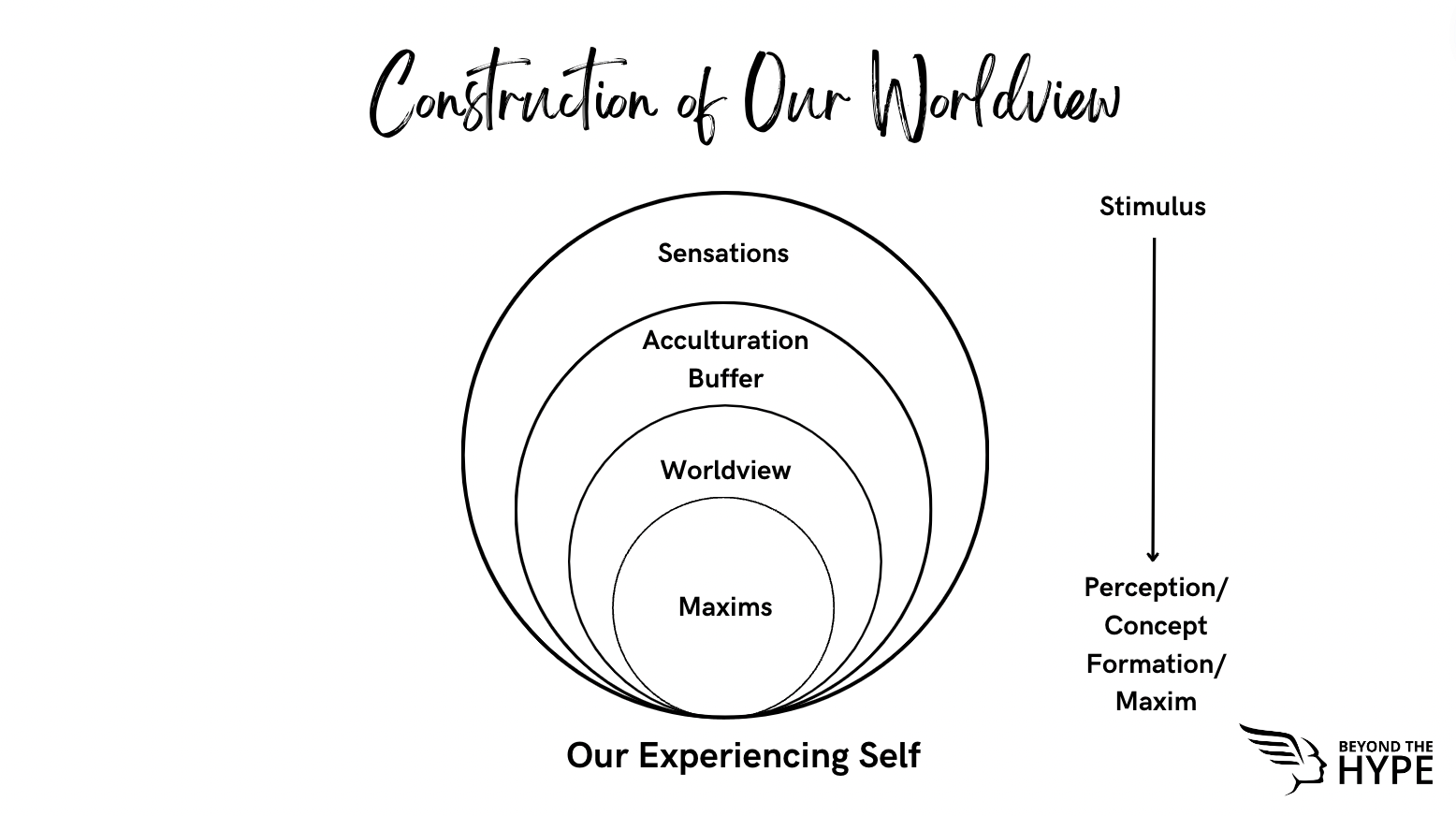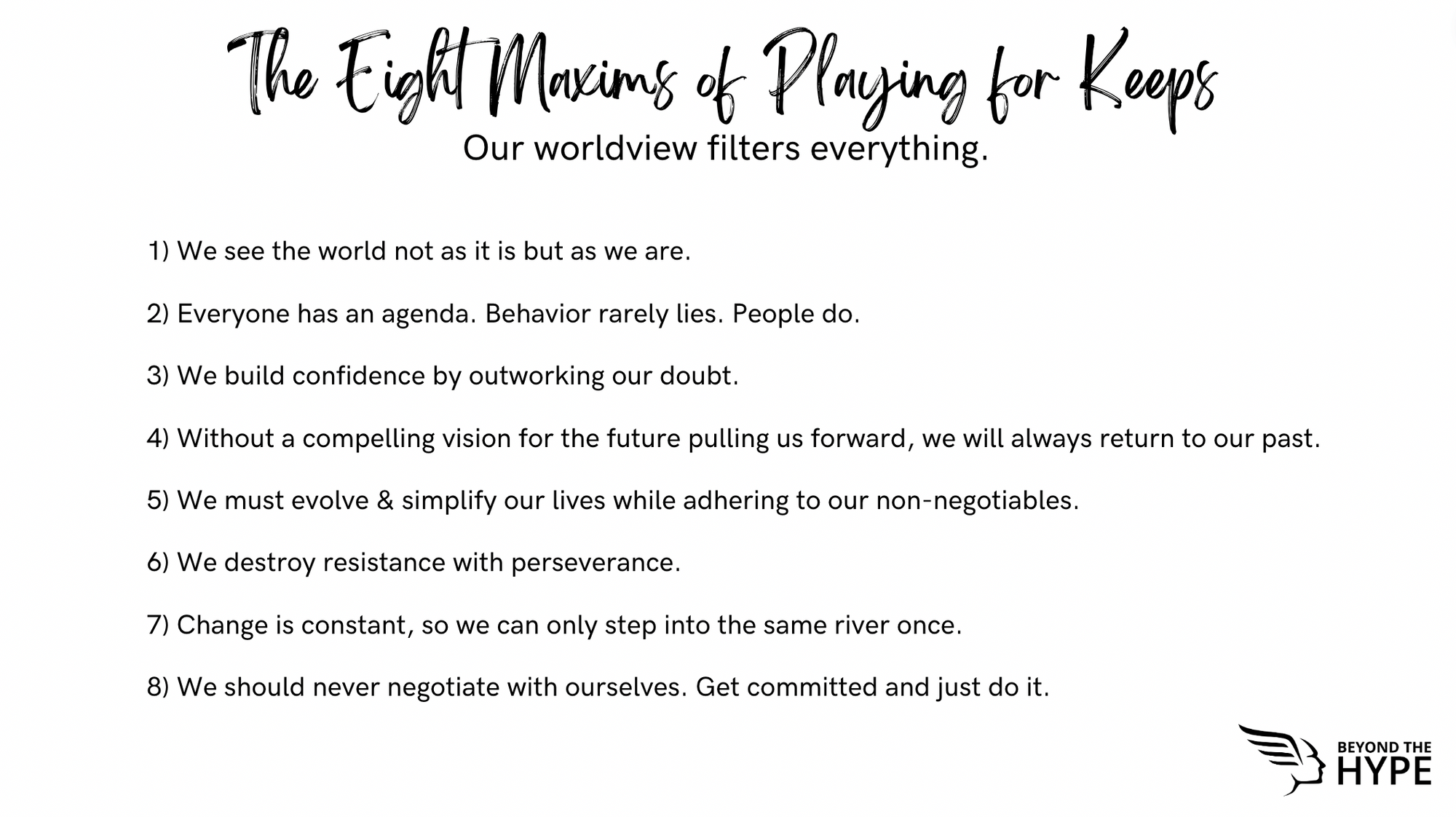Worldview.
Worldviews are powerful because they create the lens through which we see the world.

The most dangerous worldview is the worldview of those who have not viewed the world. -Alexander Von Humboldt
On September 11, 2021, I wrote a post to my website saying, “if I were a senior-level strategic analyst on the Russian desk, and I am not, I would say the Russians are preparing for a spike in inflation and/or they are getting ready to make a move on Ukraine.”
Inflation spiked months later, and on February 24, 2022, Russian forces invaded Ukraine.
What is the source of my insight? My worldview.
A worldview is defined as a broad perspective on life. A worldview indicates someone’s philosophy of how things work in reality based on their experiences. Immanuel Kant, the German philosopher, coined the concept of a worldview (Weltanschauung) in the Critique of the Power of Judgment (1790). In his theory of knowledge, he wanted to account for the unity of experience.
A worldview is indicative of our philosophy. However, the distinction between philosophy and worldview could be more apparent. We all hold some formal philosophy or what we expect out of life and assumptions we have about the world. ‘Why are we here?’ and ‘How should we live?’ The search for meaning, purpose, and values is fundamental to philosophies.
What is philosophy? Philosophy means "love of wisdom." We seek to understand fundamental truths about ourselves, the world, and our relationships with the world and each other. To avoid getting too ethereal, we construct our model of the world. Unfortunately, most worldviews are built brick and mortar by second-hand news and others' observation.
By contrast, the foundation of my worldview has been constructed by experience, a dynamic trial, and error. We have a worldview; however, the nature of that worldview is dependent on many factors expressed through the “experience.”

Looking at the graphic above, we see sensations (our senses) feeding our conscious mind through an acculturation buffer. Acculturation is when an individual adopts, acquires, and adjusts to a new culture or reality. After our adjustment, we assimilate the new reality into our worldview and, in my case, my working maxims.
A maxim is a rule or principle in one's philosophy. A maxim often motivates specific actions from essential truths.
Recently, I was introduced to David Richo’s book, The Five Things We Cannot Change.” It resonated with me. He asserts that there are specific facts of life or essential truths that we cannot change. The unavoidable “givens” of human existence in his mind are (1) everything changes and ends, (2) things do not always go according to plan, (3) life is not always fair, (4) pain is a part of life, and (5) people are not loving and loyal all the time. Our happiness is tied to accepting things we cannot change. I agree.
Further, we discover in the timeline of our lives that reality refuses to adjust for us. Therefore, we must adapt to reality. To anticipate it. And bent it. What do I mean by bending reality? We survive when we should have died. Our ability to see events like inflation or the Russian invasion of Ukraine causes us to train and prepare for the likely or the probable. When others fail to see the probable, they perish.

Like Richo’s essential truths, my maxims were acquired through experience as an action-oriented philosophy of self-defense while fighting the despair of reality. Never solely content with only surviving, my maxims grew aggressive in a desire to thrive. Words like confidence, compelling, perseverance, and commitment joined my worldview and lexicon. Leaning on the eight maxims, I have experienced playing for keeps. These maxims are the words that saturate my consciousness.
Until next time. Travel safe.
Koltko-Rivera, M. E. (2004). The Psychology of Worldviews. Review of General Psychology, 8(1), 3–58. https://doi.org/10.1037/1089-2680.8.1.3.
Rik Pinxten,(2015) International Encyclopedia of the Social & Behavioral Sciences (Second Edition).
Mark A. Runco, (2014) Creativity (Second Edition).

